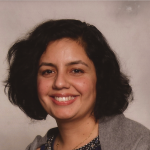 Journal of the American Geriatrics Society Research Summary
Journal of the American Geriatrics Society Research Summary
The number of informal caregivers who look after older adults with cancer is on the rise. Caregivers could be relatives, partners, or even friends who provide assistance to people in order to help them function.
Most older people with cancer live at home and are dependent on informal caregivers for support with their cancer treatment, symptom management, and daily activities. Caregiving itself can also take a toll on a caregiver’s own physical and emotional well-being, which makes it important to ensure the proper supports are in place.
Until now, no large study has evaluated whether or not caring for older adults with advanced cancer is linked to caregivers’ emotional health or to their quality of life. Recently, researchers studied a group of adults aged 70 or older who had advanced cancer (as well as other challenges). This study used information from older patients with advanced cancer and their caregivers from local oncology practices enrolled in the “Improving Communication in Older Cancer Patients and Their Caregivers” study conducted through the University of Rochester National Cancer Institute Community Oncology Research Program Research Base between October 2014 and April 2017. Results from the study were published in the Journal of the American Geriatrics Society. Continue reading

